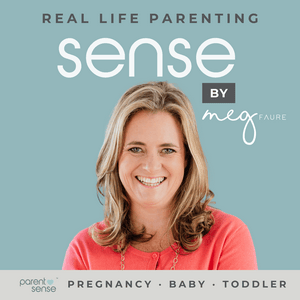This week on Sense by Meg Faure, we kick off Season 8 with a special episode dedicated to the very first chapter of motherhood: pregnancy. This is not a conversation about perfection, but a reassuring guide to understanding the profound, miraculous, and sometimes messy journey of growing a new life. Meg explores the science behind early pregnancy, the incredible changes happening in your body, and how to let go of the guilt that so often accompanies this new beginning.
Key discussion points include:
The Ripple Effect: Discover how your physical health, emotional state, stress, and nutrition create ripples that influence your baby’s development from the very start.
Genes vs. Nurture: Learn how your baby's genetic blueprint is shaped by nurture and the powerful force of epigenetics, even before you know you're pregnant.
Your Miraculous Body: Awe-inspiring insights into the physiological changes in your body, from growing a whole new organ (the placenta!) to the hormonal shifts that can make you feel like a stranger to yourself.
The Womb World: A journey back into the perfectly designed sensory sanctuary of the womb, explaining why "less is more" when it comes to stimulating your baby before birth.
Letting Go of Guilt: Meg answers a common and anxious question from pregnant moms: "I didn't know I was pregnant and I drank alcohol/missed folic acid—have I harmed my baby?" This segment offers crucial perspective and reassurance.
This episode is a deep exhale for any expectant mother feeling overwhelmed or worried, and a beautiful reminder that pregnancy is not a test to be passed, but a miraculous beginning.
About Our Host:
Meg Faure is an occupational therapist, author of the 'Sense' series of parenting books (including Pregnancy Sense), and the founder of the Parent Sense app. With decades of experience working with parents and babies, her mission is to bring calm, clarity, and confidence to the parenting journey.
Episode References and Links:
Book: Pregnancy Sense by Meg Faure
Previous Episode: The Sensory World of the Newborn (Season 8, Episode [Number])
📱 Parent Sense App – Your all-in-one baby care app for routines, nutrition, and expert advice. Download it here and use code SENSE50 for 50% off.
CONNECT WITH MEG FAURE
Web: megfaure.com
Social Media Channels: Facebook: https://web.facebook.com/MegFaure.Sense Instagram: https://www.instagram.com/megfaure.sense/
Parent Sense mobile app:
Download Parent Sense App Web: https://parentsense.app/
I hope you enjoyed this episode of SENSE BY Meg Faure! If you want to support or follow the podcast, here’s how:
Subscribe, or listen on Apple, Google Podcasts, Spotify, or wherever you get your podcasts
Leave a 5* rating and review on Apple Podcasts
Follow my social media channels or sign up to my mailing list
For episode feedback & suggestions, or to nominate yourself or a friend to appear as a guest on the show, please email
[email protected]

